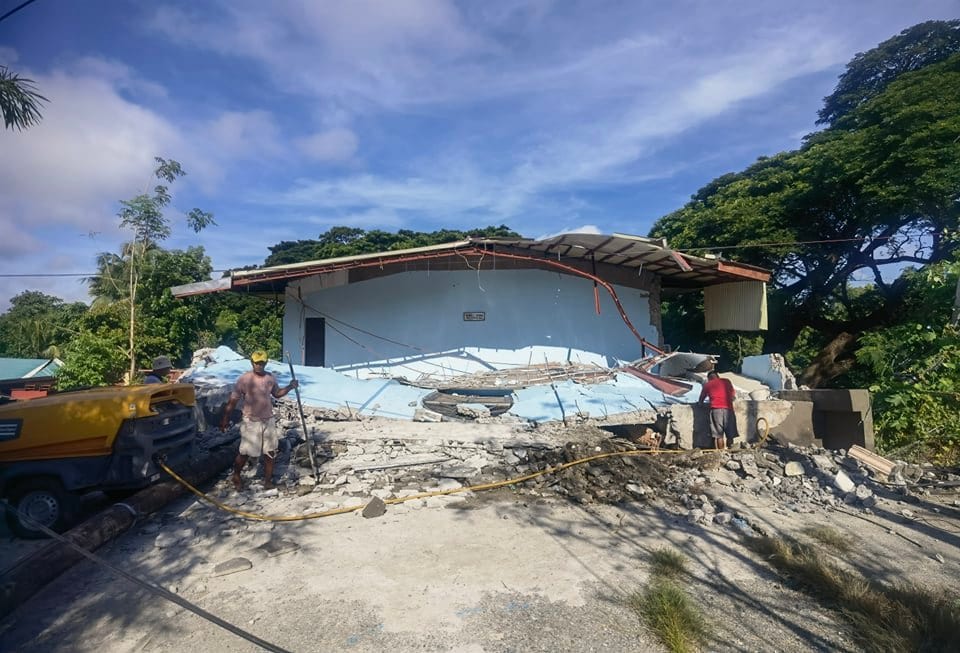
A strong earthquake jolted several provinces in the northern Philippine island of Luzon on the morning of July 27, 2022. It is the strongest recorded inland earthquake to hit the Philippines since 2013, when approximately 1.9 million were displaced in the Central Philippines region.
The 7.1 magnitude earthquake triggered four major landslides, causing damage to many properties and blocking primary national highways. The earthquake was followed by more than 40 aftershocks, according to the Philippine Institute of Volcanology and Seismology (PHIVOLCS).
PHIVOLCS reported that the earthquake’s epicenter was located in Tayum, Abra Province, in the Cordillera region. Nearby provinces like Ilocos Sur, Ilocos Norte, Baguio, Benguet, and even the country’s capital felt the earthquake’s shaking.
Northern Luzon is home to UNESCO World Heritage sites where national historic architecture is preserved, including residences of Spanish colonial architecture. Many homes in the region are vulnerable to a massive earthquake. Almost 200 buildings in the area were destroyed.
Local government units immediately responded to conduct assessments while providing necessities to families greatly affected by the calamity. An Adventist Development and Relief Agency (ADRA) Philippines team has also been conducting needs assessments on the ground, particularly in the province of Abra. ADRA Philippines program manager Jerry Requillo has traveled to the region to lead the assessment on behalf of the agency.
“There are immediate needs, particularly in the evacuation centers,” Requillo said. According to him, there are pressing needs for food, water, and hygiene kits. In addition, the government response team said that another primary concern for displaced families is shelter.
The ADRA Philippines team has yet to gather enough information to know how many families are affected or displaced by the calamity. Updates are still to come, as ADRA personnel partners with other agencies to get the information required that allows them to carry out relief operations.
Roger Caderma, president of the Southern Asia-Pacific Division of the Adventist Church, expressed sympathy to families and individuals affected by the earthquake. “I am inviting the church in the region to come together in prayer,” Caderma said. “[Let’s] be a channel of God’s love to others through donations, relief goods, or financial assistance through ADRA or local missions and conferences.”
The original version of this story was posted on the Asia-Pacific Division news site.